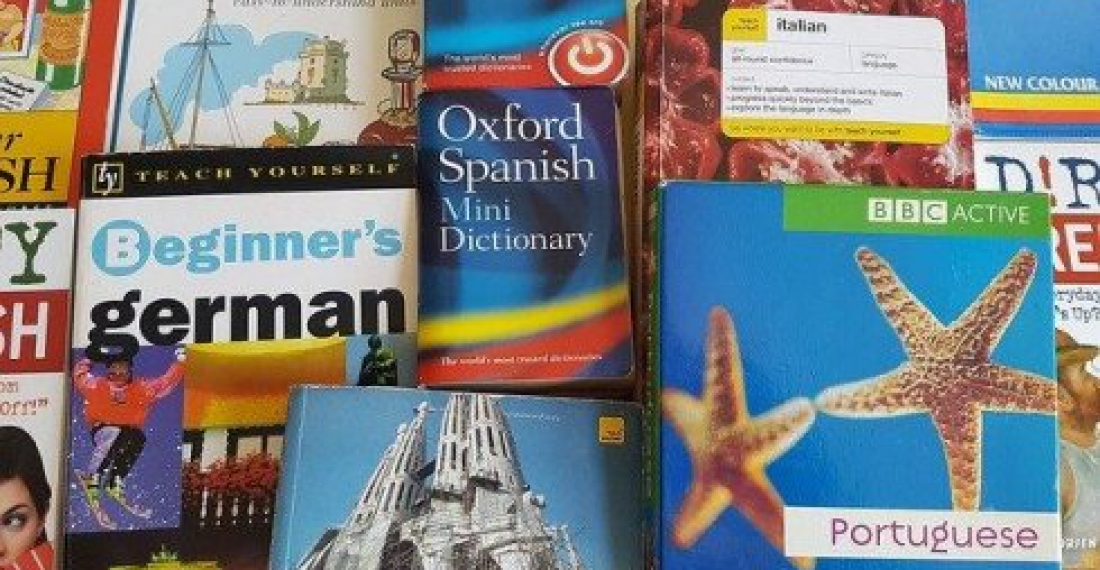William Murray writes for commonspace.eu that expanding our linguistic horizons is a good idea in the current period and not nearly as daunting as we might think.
As the COVID-19 pandemic necessitates that we all stay at home, it is a great opportunity to acquire a new language. Under normal circumstances, it can be difficult to squeeze daily language learning into a tiring schedule of work and commuting, not to mention the task of motivating oneself. On the most basic level, language learning takes time, commitment and rigorous repetition. But during the current COVID-19 pandemic, for most, time is in abundant supply; and mental health experts continue to emphasise the importance of establishing a daily structure and giving oneself a sense of purpose when most normal activity has been put on hold [1].
It is very common for people across Europe to speak more than one language. Studies have shown that over half the EU population are able to hold a conversation in a language other than their own, with this exceeding 90% in certain countries - the Netherlands, Lithuania and Latvia, amongst others [2]. Multilingualism is, after all, understood to be one of the founding principles of the European Union, embodying the EU's motto, 'United in Diversity' [3].
However, in certain countries on the European continent, the ability to speak more than one language is considerably lower than others. This could be put down to a lack of belief in one's own ability - in the same way that a trilingual person has little doubt that through hard work and commitment, they could capably learn a fourth or fifth language; monolingual individuals see the task of learning an entire second language as an impossibly daunting prospect. In largely multilingual countries, it is much more difficult for individuals to feel that learning an additional language is impossible when so many of their peers have managed to do so.
Language learning is difficult but not nearly as impossible as it may seem. Too often monolingual people tout the same excuse, which they honestly believe to be the case - that the window for learning a second language has long since passed and that they only wish they had done so when they were younger. In his widely-acclaimed book, Fluent Forever, Opera singer-turned-linguist, Gabriel Wyner, refers to the idea that children are immeasurably better at learning languages as a myth - "Kids seem to succeed at language learning where adults fail, but that's only because they get so much more input that we do". Wyner does concede that children have a few innate advantages - such as a lesser concern for making mistakes and a blank canvas on which to build - but that these are things that can be overcome as adults by learning languages with confidence and using certain techniques that through repetition build natural linguistic foundations. "Fortunately for us, the [language learning] machine in [children's] heads never stops working. If we want to learn a new language, we just need to know how to use it," Wyner claims [4].
But why should we learn more languages? Especially for those native to English-speaking countries, knowledge of the lingua franca makes it very easy to get by, which seems to undermine the value of additional language learning. But language is not merely a tool for transactional exchanges of information, but a way of forming genuine human connections and thoroughly understanding other people at the most basic level. Nelson Mandela is said to have stated, 'if you talk to a man in a language he understands, that goes to his head. If you talk to him in his own language, that goes to his heart'. Additionally, there is more than an element of truth in Goethe's claim that, "a man who has no acquaintance with foreign languages knows nothing of his own." [5] Many studies have shown that by learning additional languages, one will gain a much better understanding of their native language, through improved communication skills and a further understanding of basic linguistic structures [6].
There is no doubt that many of you are reading this in your second, third or umpteenth language, but the message remains the same. Why not challenge yourself to learn something unfamiliar such as a coding language? Whilst the nuances of communication between human beings and computers are entirely different, the structure and purpose that committing to a daily task with a tangible development track will give us is very likely to make our time in isolation a lot more bearable.
With all this time on our hands and the need for us all to keep a solid daily routine for our mental health, language learning is a valuable and rewarding hobby for all of us to consider. In addition, learning a new skill can help each of us to come out of this period developmentally at a net positive.
Source: William Murray, Project Officer and Coordinator at LINKS Europe, for commonspace.eu
Featured references:
[1] WHO Europe - 'Mental health and psychological resilience during the COVID-19 pandemic': http://www.euro.who.int/en/health-topics/health-emergencies/coronavirus-covid-19/news/news/2020/3/mental-health-and-psychological-resilience-during-the-covid-19-pandemic
[2] The Guardian - 'Most Europeans can speak multiple languages. UK and Ireland not so much': https://www.theguardian.com/news/datablog/2014/sep/26/europeans-multiple-languages-uk-ireland
[3] The European Commission - 'About multilingualism policy': https://ec.europa.eu/education/policies/multilingualism/about-multilingualism-policy_en
[4] G. Wyner - 'Fluent Forever': https://fluent-forever.com/book/
[5] J.W. Goethe - 'Maxims and Reflections': https://www.gutenberg.org/files/33670/33670-h/33670-h.htm
[6] The Alberta Teacher's Association - 'Literature Review on the Impact of
Second-Language Learning': https://www.caslt.org/files/media/news/Lit-review-Impact-L2-Learning.pdf







